Learning in the Making is a video series where we invite guest hosts of color on as equal and valued partners and collaborators, so that they can tell their stories and showcase the amazing things they are making and doing! In addition to learning with our guests through video project guides, we also interview our hosts to learn a little bit more about them.
This week, as we celebrate Learning in the Making’s first birthday, we have two incredibly special posts featuring Linda Le and Dora Medrano Ramos, who started Learning in the Making last year.
In this post, we chat with Dora: educator, math healer, undocumented immigrant, and big dreamer redefining who gets to be called a “maker” and what is considered “making.”
 Tell us a bit more about yourself!
Tell us a bit more about yourself!
I’m an educator, an immigrant, a daughter, a sister, a wife, and a new mom. I was raised and loved fiercely by a single mother. I’m ambitious, I have big dreams, and I care deeply about a lot of things. I care about healing math trauma and making math learning more culturally relevant, especially for people of color. I care about centering the learning and liberation of youth of color in everything we do. I’m resilient. I’m the first in my family to graduate college. I embrace radical honesty and try to bring my authentic self to everything I do. I’ve spent too much time trying to survive in a system that doesn’t honor my full self that I’m learning to stop hiding who I am. I’m on a journey to becoming a lot of things, to constantly learn and unlearn, to stretch myself in new ways.
What’s one thing about yourself that you think is important for others to know?
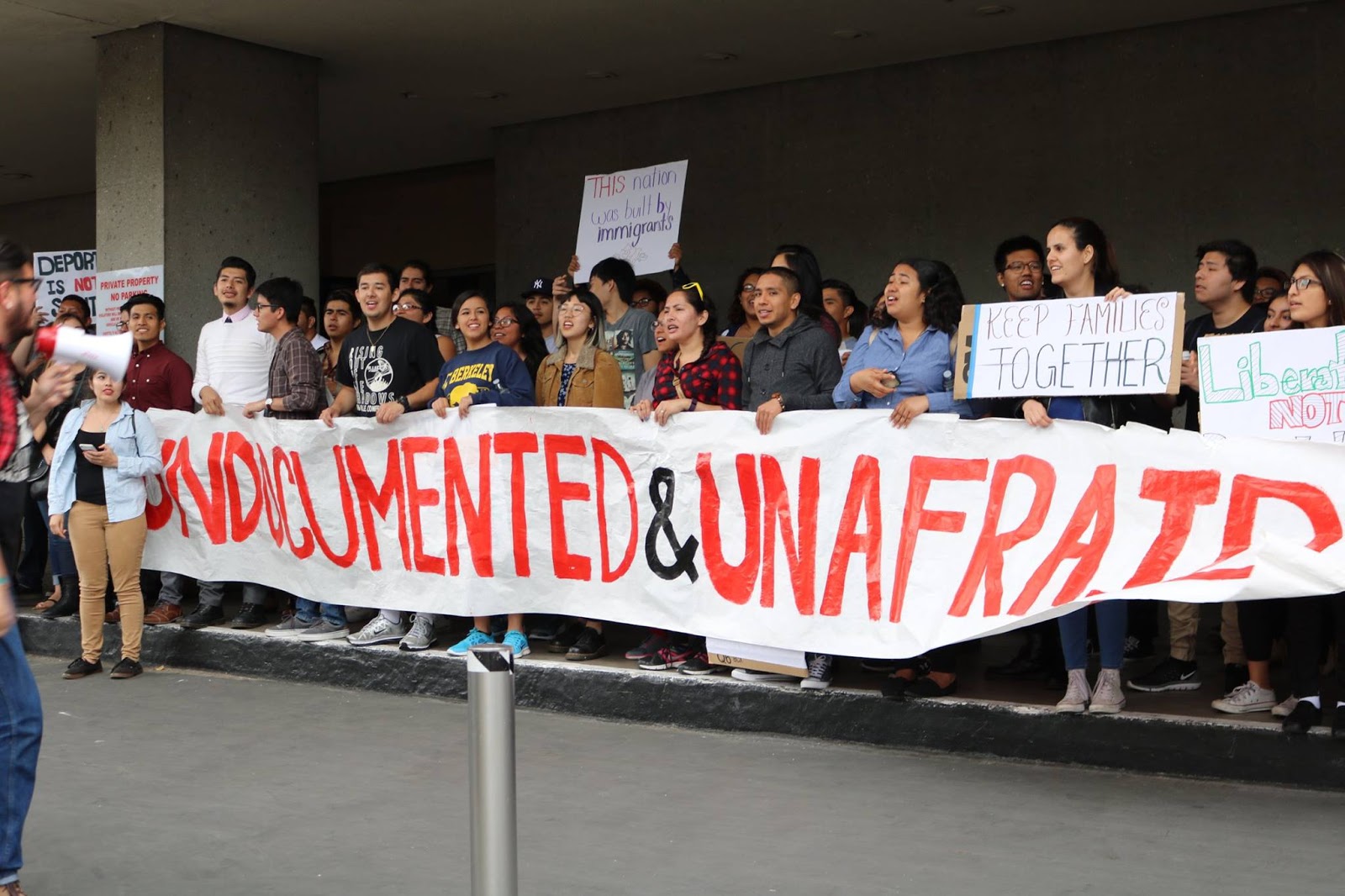 I consider myself a zero-generation immigrant – someone born in one country and forced to grow up in another, forever stuck between two worlds and not really fitting into either. Ni de aquí, ni de allá. I grew up undocumented and so much of my identity has been shaped by my status, my language, my cultural conflicts as an immigrant, and a sense of loss of ancestral knowledge and wisdom. A lot of my formative years as a student were spent struggling with these parts of myself and living in fear of what my future could be. I’m so grateful to the community before me that fought so hard for things like AB 540, DACA, and the CA Dream ACT that made it possible for undocumented folx like me to survive and thrive. It’s important to understand that young people made those things happen. Young people fought for change. Young people made the system better for future generations and because of this, I believe deeply that we, as educators, need to equip youth with the tools to critique unjust systems and reimagine a more liberatory future in their place. At Maker Ed, we talk about developing learners’ critical consciousness – the ability to recognize, analyze, and then take action against unjust systems in order to dismantle oppressive structures. This is a collective struggle that we all need to take part of, but I really do believe it’s possible for young people to change the world.
I consider myself a zero-generation immigrant – someone born in one country and forced to grow up in another, forever stuck between two worlds and not really fitting into either. Ni de aquí, ni de allá. I grew up undocumented and so much of my identity has been shaped by my status, my language, my cultural conflicts as an immigrant, and a sense of loss of ancestral knowledge and wisdom. A lot of my formative years as a student were spent struggling with these parts of myself and living in fear of what my future could be. I’m so grateful to the community before me that fought so hard for things like AB 540, DACA, and the CA Dream ACT that made it possible for undocumented folx like me to survive and thrive. It’s important to understand that young people made those things happen. Young people fought for change. Young people made the system better for future generations and because of this, I believe deeply that we, as educators, need to equip youth with the tools to critique unjust systems and reimagine a more liberatory future in their place. At Maker Ed, we talk about developing learners’ critical consciousness – the ability to recognize, analyze, and then take action against unjust systems in order to dismantle oppressive structures. This is a collective struggle that we all need to take part of, but I really do believe it’s possible for young people to change the world.
What excites you most about your work?
I do this work because I believe that maker education can be used as a tool for liberation, healing, and learning. As Learning Events Manager at Maker Ed, I’m excited about the possibilities of developing and facilitating powerful learning experiences that support educators to integrate liberatory, maker-centered learning into their practice. I’m excited to find ways to shift educator practice to be more equitable, anti-racist, and leaner-centered. I’m excited about building community with other educators and organizations, so that we can all learn, grow, and support each other. We can’t do this work alone! I also think making is fun and joyful, so I’m always looking forward to having fun with people and learning how to make in new ways!
Why do you make?
Making is ancestral. It’s in our blood. My ancestors have always been makers, artists, storytellers, scientists, mathematicians, engineers, astronomers, musicians and so much more – even if we often don’t get recognized and celebrated as all those things. BIPOC (Black, Indigenous, and People of Color) have always been making as a way of life, although it might not have always been called “making.” I want to redefine who gets to be called a “maker” and what is considered “making.” I realized that the people around me engage in making in so many different ways. My mom is a maker. Growing up, she handmade all our clothes. She knits the most mathematically complex items. She grows her own food and brings life to plants. My husband is a maker. He inspires me to see the world differently. He can build or repair or create anything he can imagine because he knows how to learn new things. My sisters are both makers. They have their own way of creating the most beautiful art, through traditional and digital painting, that tell stories and provoke emotions. I make because I want my son to grow up knowing he can make and learn anything he wants, just like his ancestors before him.
What dreams do you have for young people?
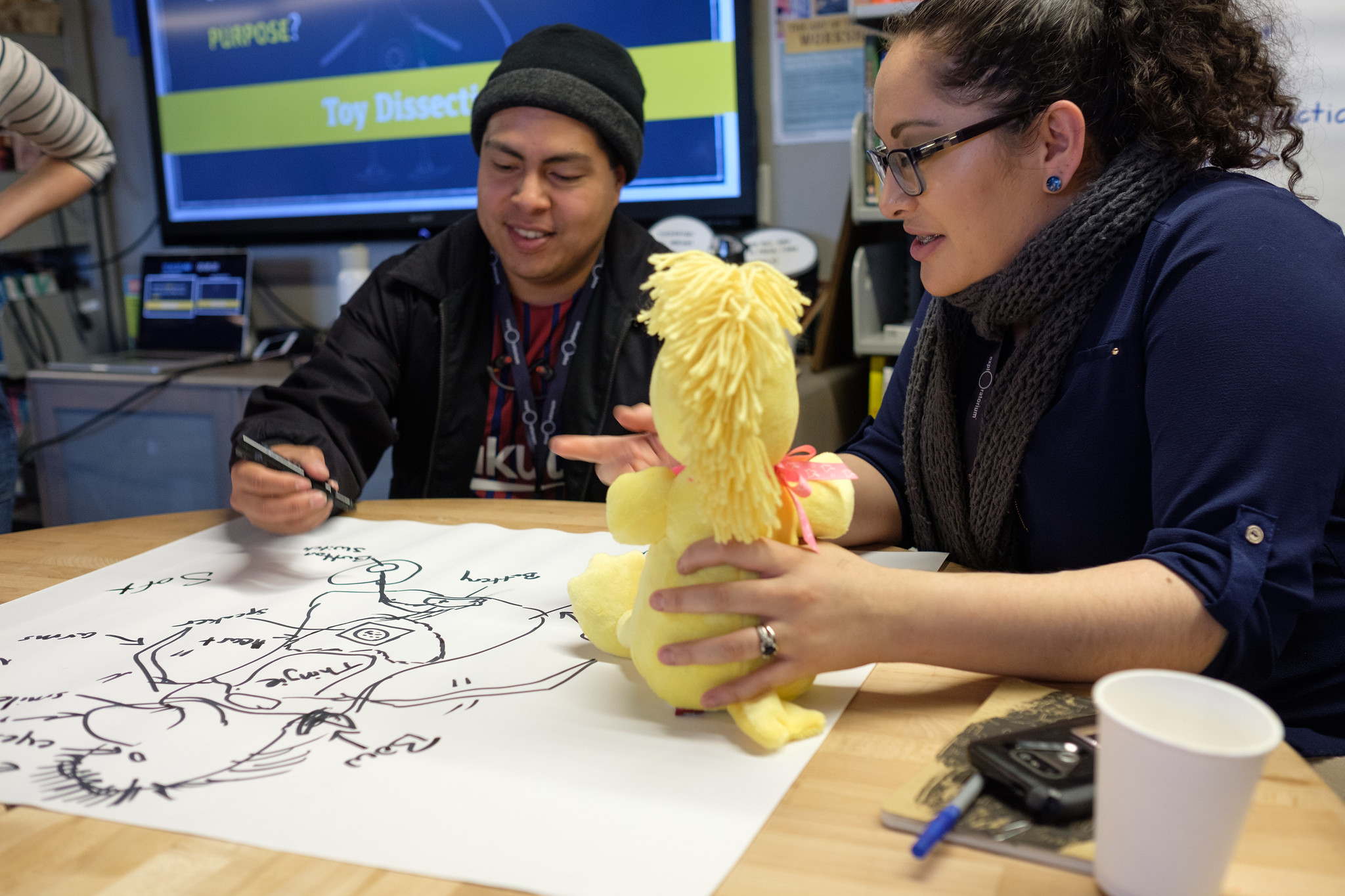 I want them to build capacity for liberatory defiance! To be able to critique oppressive spaces and systems that do not serve them. To be able to stand up to injustice when they see it. I also want them to experience joy and freedom and a love for learning. Laughter and joy are essential parts of being human and are so necessary for students of color and marginalized students who are often dehumanized and devalued. I want so much for young people to experience healing and wholeness. I want them to be so free and so confident in themselves, that no one can ever take their joy away. I want their full authentic selves to be honored, celebrated, and affirmed. I want them to be able to freedom dream a future where all these things are possible and be able to make it happen. A quote by Assata Shakur that I hold in my heart is, “The schools we go to are reflections of the society that created them. Nobody is going to give you the education you need to overthrow them. Nobody is going to teach you your true history, teach you your true heroes, if they know that that knowledge will help set you free.” My dreams for young people are that they can overthrow the systems that aren’t working and find freedom in new ones.
I want them to build capacity for liberatory defiance! To be able to critique oppressive spaces and systems that do not serve them. To be able to stand up to injustice when they see it. I also want them to experience joy and freedom and a love for learning. Laughter and joy are essential parts of being human and are so necessary for students of color and marginalized students who are often dehumanized and devalued. I want so much for young people to experience healing and wholeness. I want them to be so free and so confident in themselves, that no one can ever take their joy away. I want their full authentic selves to be honored, celebrated, and affirmed. I want them to be able to freedom dream a future where all these things are possible and be able to make it happen. A quote by Assata Shakur that I hold in my heart is, “The schools we go to are reflections of the society that created them. Nobody is going to give you the education you need to overthrow them. Nobody is going to teach you your true history, teach you your true heroes, if they know that that knowledge will help set you free.” My dreams for young people are that they can overthrow the systems that aren’t working and find freedom in new ones.
If you could share one word of advice to give to other educators, what would it be?
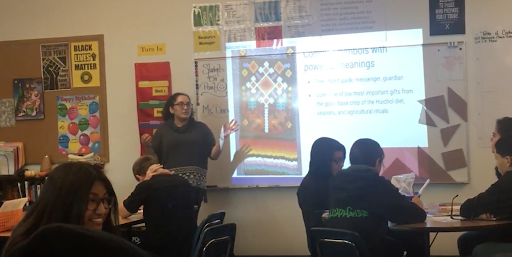 I’m not sure what advice I can offer, but I can offer a quote by bell hooks that has become my north star over the years – “To educate as the practice of freedom is a way of teaching that anyone can learn. That learning process comes easiest to those of us who teach who also believe that there is an aspect of our vocation that is sacred; who believe that our work is not merely to share information but to share in the intellectual and spiritual growth of our students. To teach in a manner that respects and cares for the souls of our students is essential if we are to provide the necessary conditions where learning can most deeply and intimately begin.” So my advice would be that if you choose to do this work, then you need to live in the belief that your work is sacred, that your learners are brilliant people whose growth needs to be cultivated, and that you have the opportunity to influence the outcomes of their futures.
I’m not sure what advice I can offer, but I can offer a quote by bell hooks that has become my north star over the years – “To educate as the practice of freedom is a way of teaching that anyone can learn. That learning process comes easiest to those of us who teach who also believe that there is an aspect of our vocation that is sacred; who believe that our work is not merely to share information but to share in the intellectual and spiritual growth of our students. To teach in a manner that respects and cares for the souls of our students is essential if we are to provide the necessary conditions where learning can most deeply and intimately begin.” So my advice would be that if you choose to do this work, then you need to live in the belief that your work is sacred, that your learners are brilliant people whose growth needs to be cultivated, and that you have the opportunity to influence the outcomes of their futures.
Are there other makers and/or educators in your community whose work you’d like to promote?
I learn so much from so many people! I’ve learned from Dr. Gholdy Muhammad how to cultivate the genius in all youth and reimagine curriculum that is culturally and historically responsive. Amplify RJ teaches Restorative Justice philosophy, practices, and values through a lens of Abolition, Anti-Racism, and Decolonization. Dr. Rochelle Gutierrez inspires my commitment to rehumanize math teaching and learning. Monika Mayer and Reyna Hamilton are both incredible educators who gave me opportunities to grow into the educator I am now. Aaron Vanderwerff has been my mentor over the years- I have learned so much from him and he has shaped my approach to teaching in many ways. All my co-workers are also brilliant, passionate people and I am grateful to be in community with them. Special shout out to Learning in the Making co-creator, Linda Le, who is an amazing co-worker at Maker Ed, co-conspirator on a journey towards a more just future, and I am so honored to learn from her everyday.
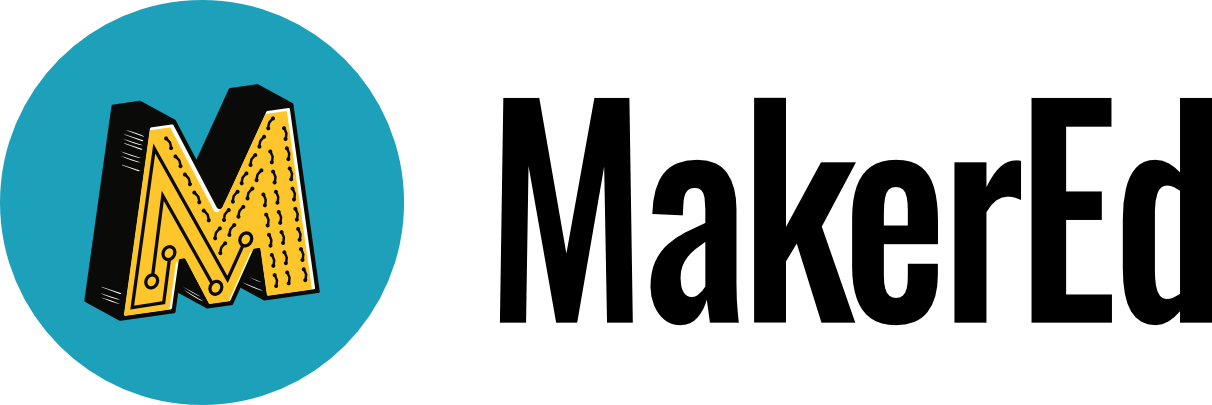
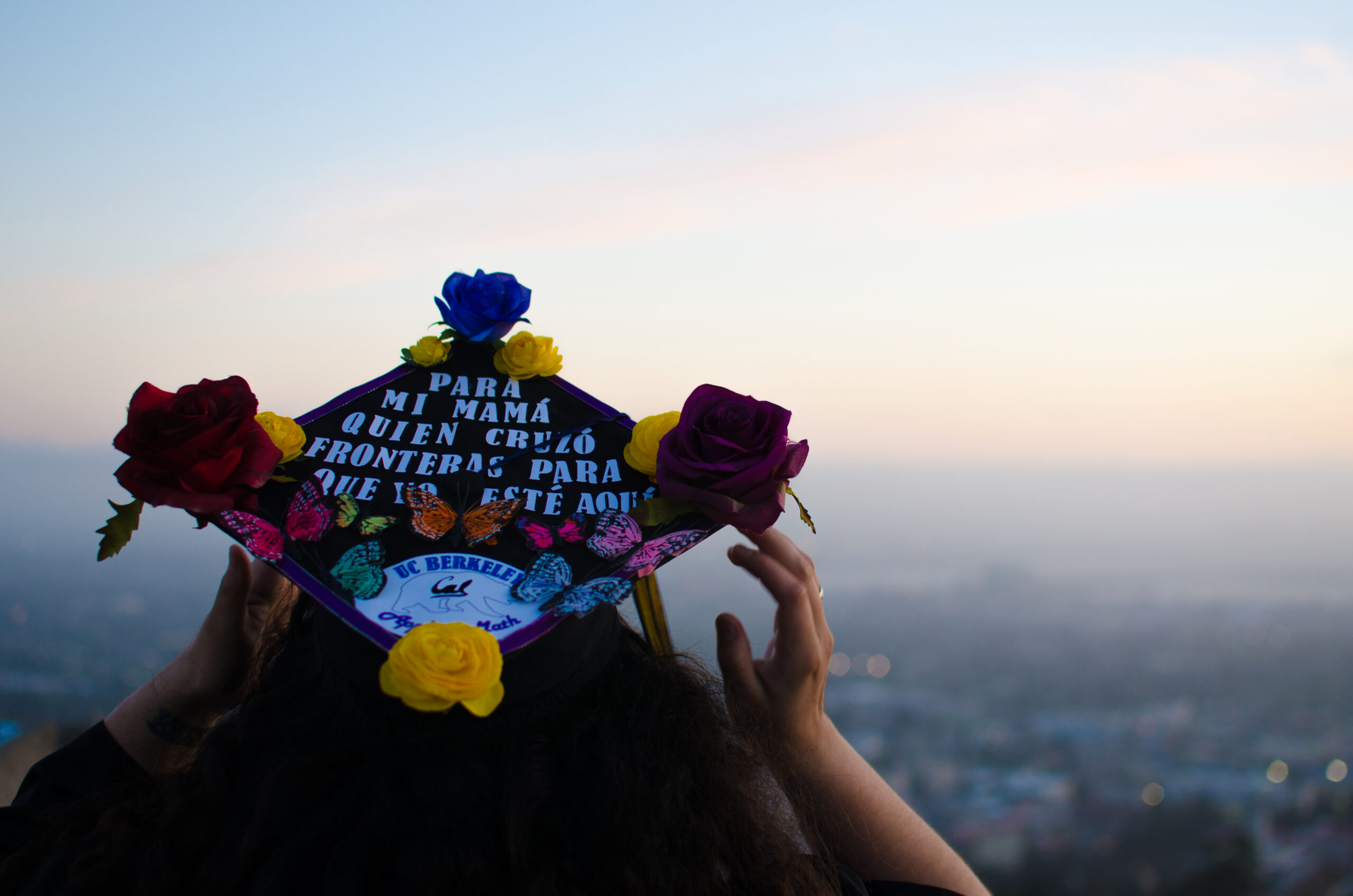
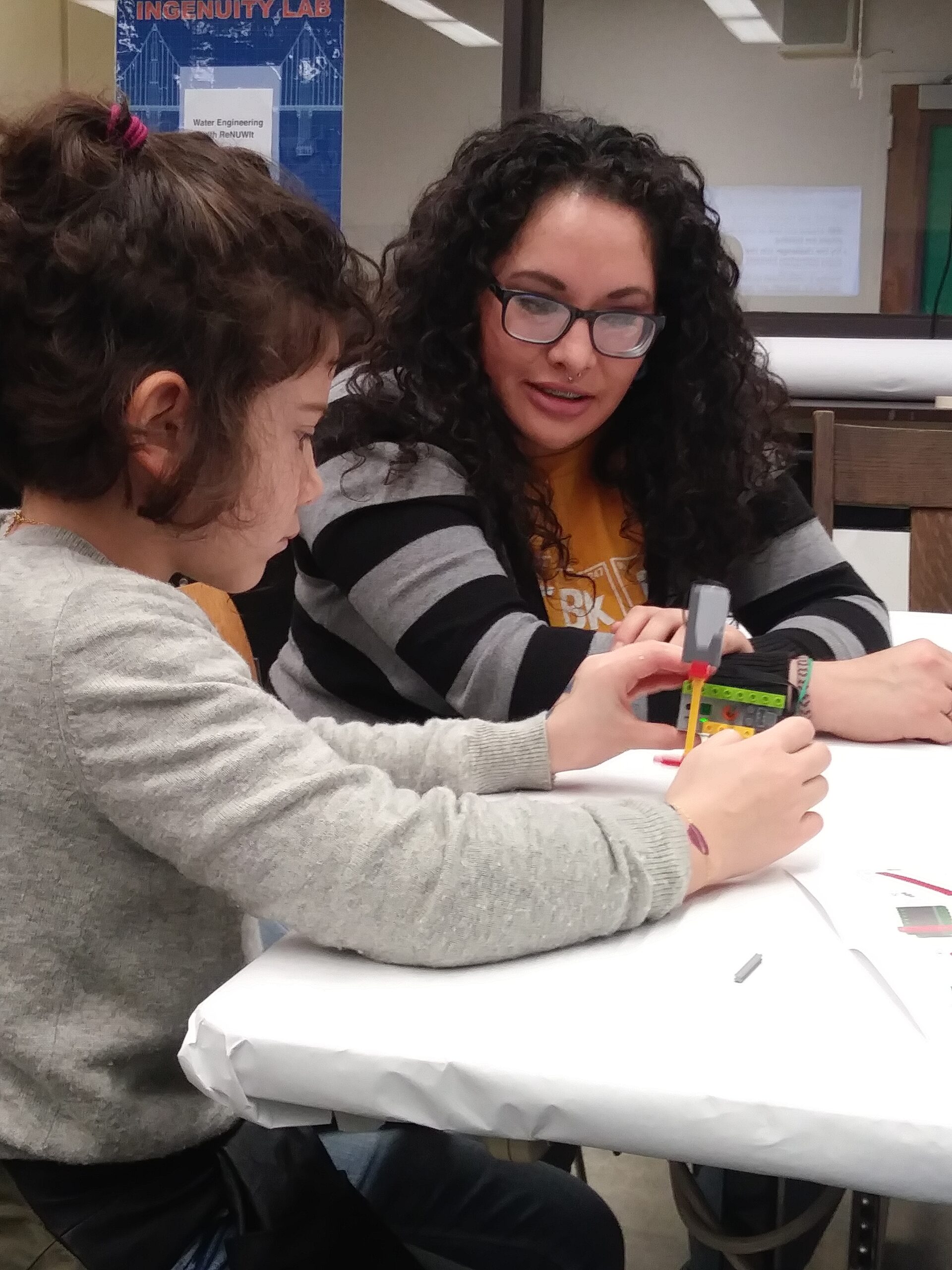
Leave a Reply